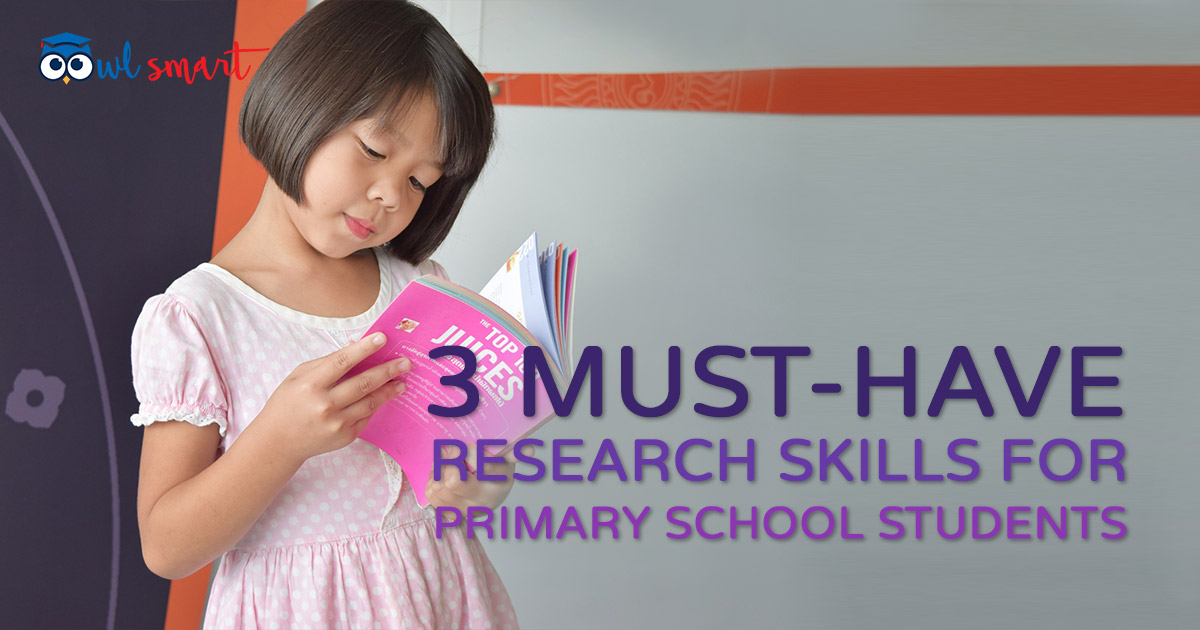
Primary 4 seems to be the level that most local primary schools have chosen to expose research work to their respective students. We have highlighted the following three areas that would be of interest to parents and students embarking on research work in Primary 3 or 4.
Skill #1: Ask a broad question and refine it for the search engine to get better search results
There is simply too much information online nowadays. Furthermore, most of our younger students are used to just keying in a search term such as "Botanic Gardens Singapore" and then scrolling through pages of search results, hoping to come across the one website that they need.
Suggested Solution: Let’s take the above search term as an example. Basically, we want to reduce the number of search results by being specific in our search terms. Provide teams of students three search results ranging from general to specific. E.g. "Botanic Gardens Singapore, national parks Singapore" and "History of the Botanic Gardens in Singapore".
The general search, "Botanic Gardens Singapore" showed 33 400 000 search results while the more specific search term "History of the Botanic Gardens in Singapore" showed 12 200 000 search results.
Get the students to practise further by providing a general search term such as plastic pollution. The students will keep refining the search terms in order to be more specific. They will then discuss to see how the choice of different words in the search term can produce different information in the search results.
Skill #2: Evaluate the quality of the sources of information chosen
Most of our students would not hesitate to say that they are digitally savvy and that they can always find what they need. However, a recent 2016 study on how teens evaluate information they find online, conducted by the Stanford University on 7 804 students, revealed that a staggering 82% could not tell the difference between a “sponsored content” and a real news story on a website. Most came away with the idea that the website is credible if it contains a large, eye-catching subject-related image or simply lines and lines of content that they simply believe at face value.
Suggested Solution: Create rubrics that scores the choice of websites in terms of the following suggested criteria.
-
Currency
Is the information updated regularly or recently? When was the last update on the website?
-
Subject Authority
Is the content created by individual(s) who is practising/formerly practising it? Or is it one without any information of its owner or content creator? More often than not, there would be an email address for interested parties to contact them if queries arise.
-
Depth and width
Is the website very detailed on one aspect of your research topic? Or is it very general in that it simply provides a brief explanation of several research terms of interest? What is the main value of its content?
Skill #3: Acknowledging sources of information
The students should practise the habit of providing a list that shows the website addresses of all the websites they have selected and referenced in their research work.
The student can access a free citation machine at https://www.citefast.com/?s=APA#_Webpage to create a proper reference of the website, https://www.wwf.sg/get_involved/useless_plastic_/ that he has selected as a source of information. The citation machine will create the following detail that the student can copy and paste on his reference page.
Useless Plastic. (2019). Retrieved from https://www.wwf.sg/get_involved/useless_plastic_/
Conclusion
The above are just three suggested research skills that the primary student can start with to gain a good foundation in conducting proper research work.
About the Author
Teacher Chin has more than a decade of experience in teaching English from Primary Two to Primary Six in local primary schools. He is presently, in his free time, having immense enjoyment experimenting with the Nimzo-Indian Defence in chess and trying out the Apacs Lethal 9 in badminton doubles.



